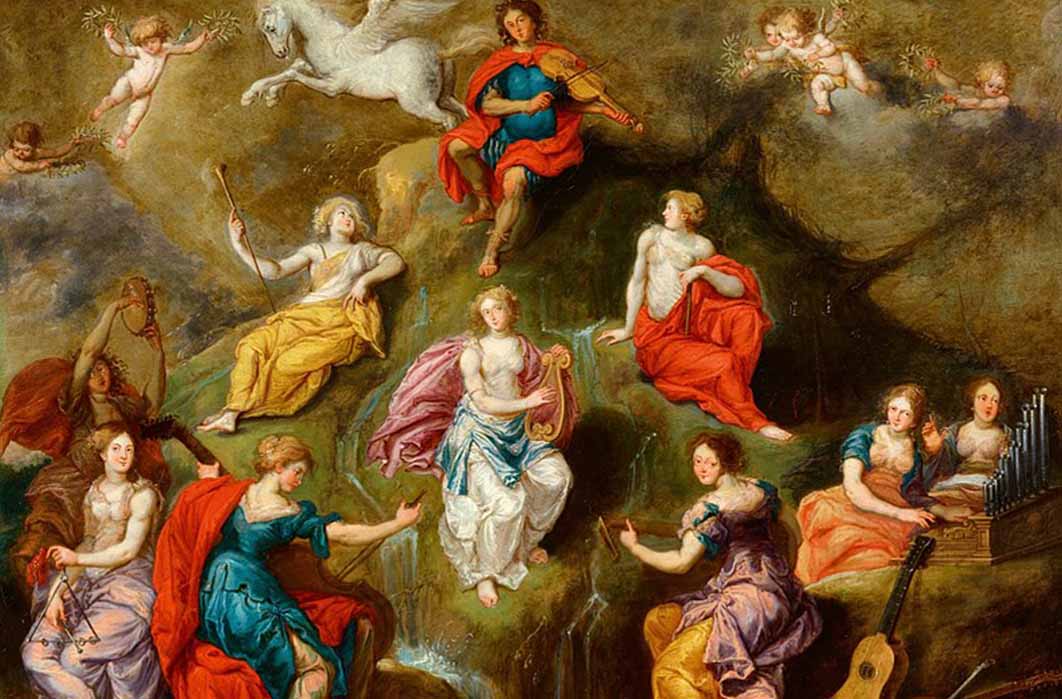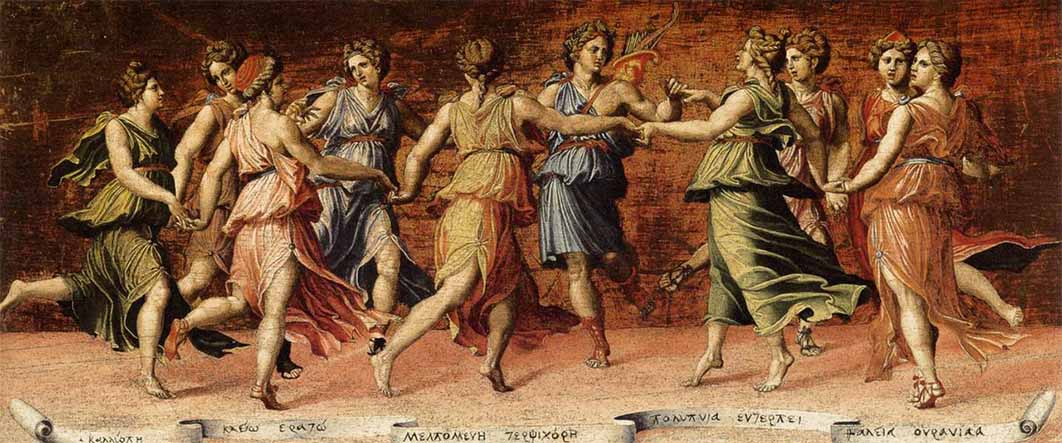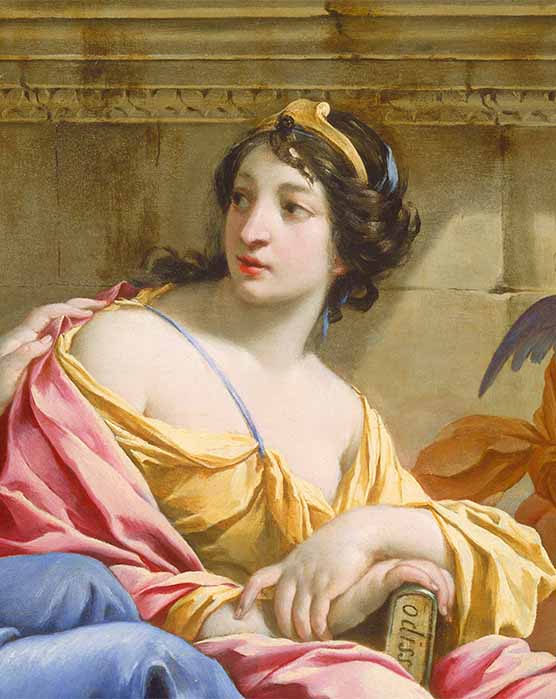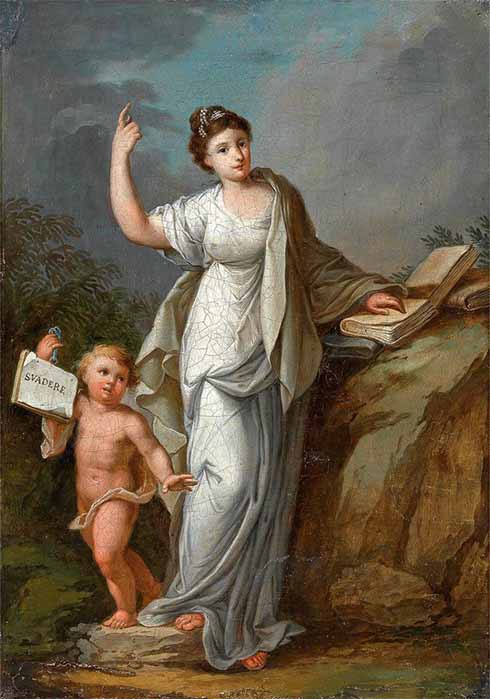
Sing O Goddess, Timeless Inspiration Of The Muses
Once upon a time, Zeus spent nine consecutive nights sleeping with Mnemosyne, the Titan goddess of memory. These passionate nights gave birth to the nine Muses. The Muses are Erato, Euterpe, Melpomene, Polyhymnia, Terpsichore, Thalia, Urania, Calliope, and Clio. Many centuries later, the Muses were honored in the writings of poets, authors, and painters such as Shakespeare, Milton, Dante and Rossetti. In the opening line of his Henry V, Shakespeare refers to the “Muse of fire”, and Milton beseeches the “Heav’nly Muse” to sing at the beginning of his Paradise Lost. By invoking a muse at the opening of their works, Shakespeare and Milton carried on a centuries-old custom. Written thousands of years before their time, the epic poem Iliad already opens with one of the most well-known muse invocations. When Homer says, “Sing, O goddess, the anger of Achilles son of Peleus, that brought countless ills upon the Achaeans” in book I of the Iliad, he is likely calling to the muse, Calliope, the muse of epic poetry.

Apollo and the Muses by Baldassarre Peruzzi (1514) (Public Domain)
The Muses lived on the top of Mount Olympus, where they spent their days entertaining their father Zeus and the other Olympian deities. At the conclusion of the first book of the Iliad, Homer describes a rather magnificent set piece of the gods on Olympus in which the Muses respond to each other's songs while Apollo plays his lyre as they are entertaining the gods during their feast. Apollo also dances on Mount Olympus while the Muses sing in the Homeric Hymn to Apollo. In Homer’s stories, the Muses and Apollo seem to always perform together except for Achilles’ funeral in which the Muses appear alone. Apollo's presence would have been considered to be impolite as he was the cause of Achilles' demise.
Later customs claimed that the Muses lived at the top of Mount Helicon in Boeotia, the site of a significant goddess cult. In his Theogony, Hesiod claimed to have had a conversation with the Muses at this site, during which they bestowed upon him their divine voice accompanied by a lush branch of laurel, giving him their blessings to enable him to exalt the gods and their progeny. Thus, Hesiod the unassuming shepherd became one of the greatest poets in history. It is also in the Theogony where Hesiod immortalizes the image of the Muses as singing and telling “of what is, what shall be and what was before,” signifying their talents in seeing into the past, present and future. Similar to Hesiod, Homer describes that the Muses “greatly loved him and gave him a blessing and a curse” for Demodocus in the Odyssey, giving his vision of the perfect bard, that is, the bard that is blessed by the Muses.

Detail of Caliope holding a copy of The Odessey, by Simon Vouet (1634) (Public Domain)
Calliope’s Epic Poetry
Being the muse of epic poetry, Calliope frequently appears in artwork holding a tablet or scroll of well-known poems. As epic poetry was typically accompanied by music in ancient Greece, the muse would dance to the bard's skill if she was impressed, giving the creator her favour. Therefore, Calliope’s talents also include song, dancing, and music. “The Muses are my companions, my songs are dear to the reader, and Calliope never tires of dancing to my music,” the poet Propertius writes about Calliope in book III of his Elegies. Calliope’s son Orpheus inherited her gift and went on to become the greatest musician of all time. In his Imagines, the Athenian philosopher Philostratus briefly referred to Orpheus as “the son of the Muse” and went on to refer to Calliope's blessing and says of Orpheus, “All the storytellers agree that Orpheus's music charms even beasts that have not human intelligence.”
The Muse Clio by Bernhard Rode (18th century) (Public Domain)
Clio Eternal History
Whether they are politicians, poets or heroes, Clio, the muse of history, would inspire them to leave a lasting impression on the world that would help people remember them for all eternity. When the Roman epic author Statius hoped for his writings to remain unspoilt by time, he makes a wish to Clio, “Begin thou, unforgetting Clio, for all the ages are in thy keeping, and all the storied annals of the past,” he says to the muse in Thebaid. Clio was vital to humanity's history and destiny due to her power of foresight. The epic poet Valerius Flaccus acknowledges her power in book III of his Argonautica as he writes “Clio, do you now reveal the reasons behind the heroes' horrific deeds? You, O Muse, have been granted the ability to see into the minds of the gods and understand the processes that lead to reality.”





